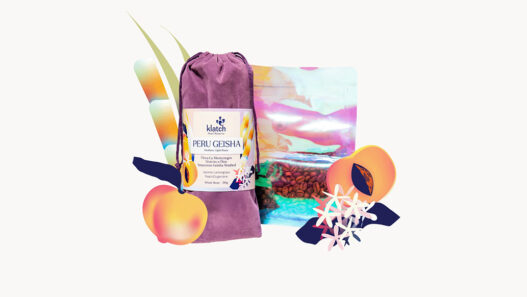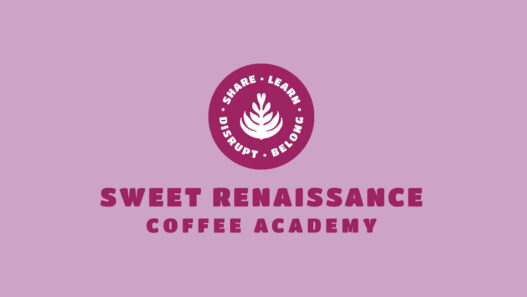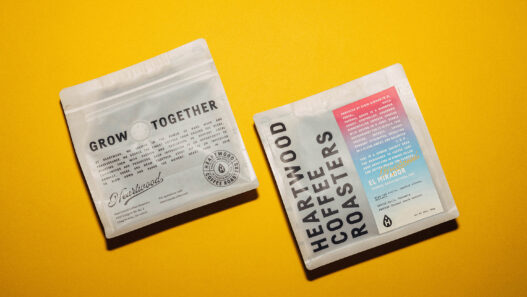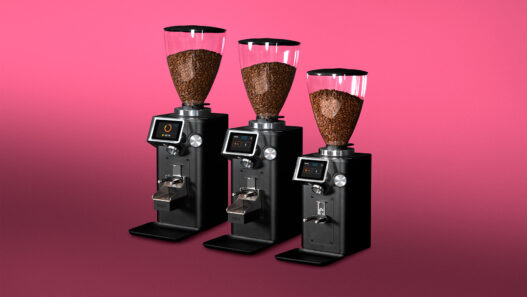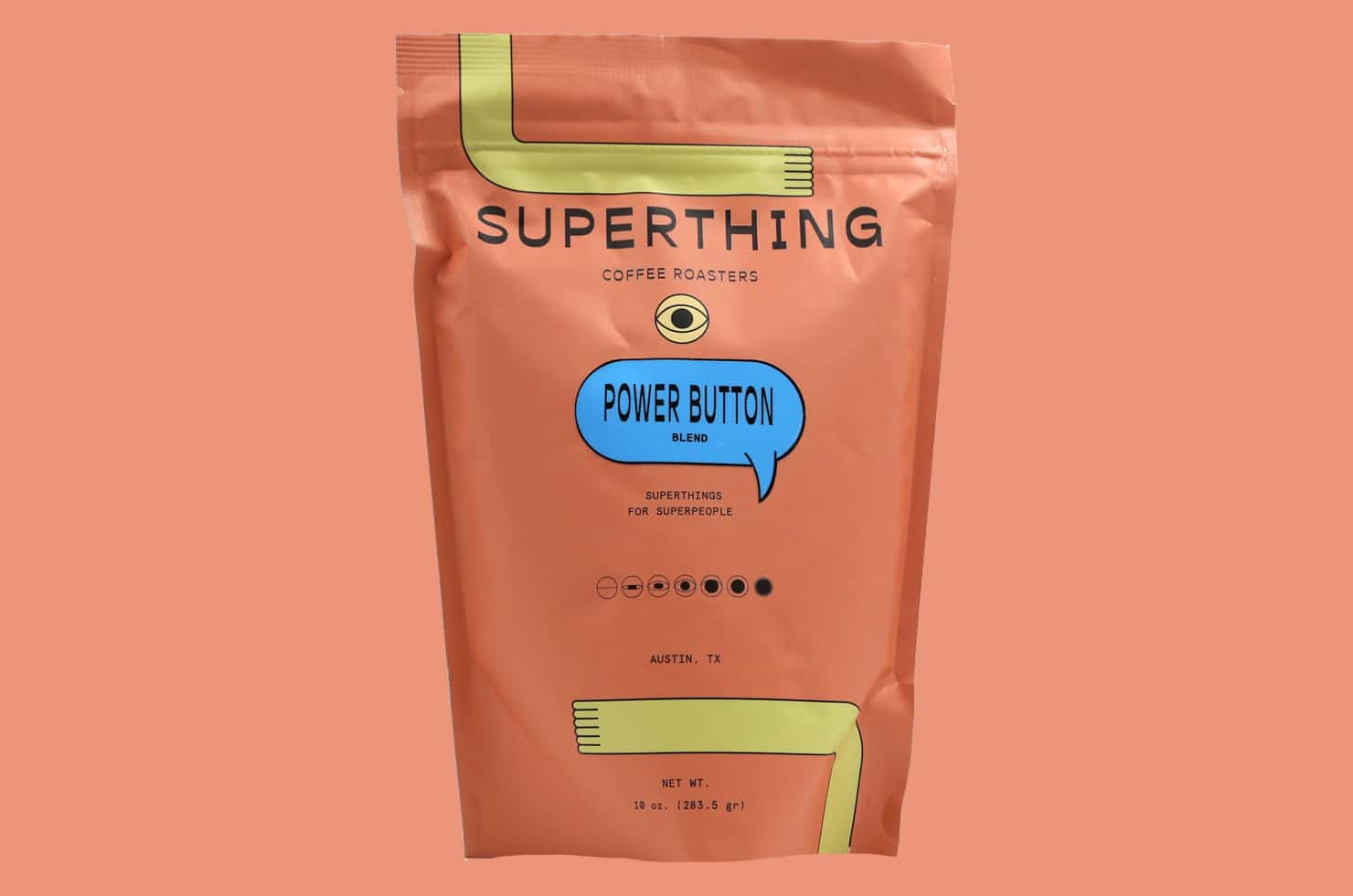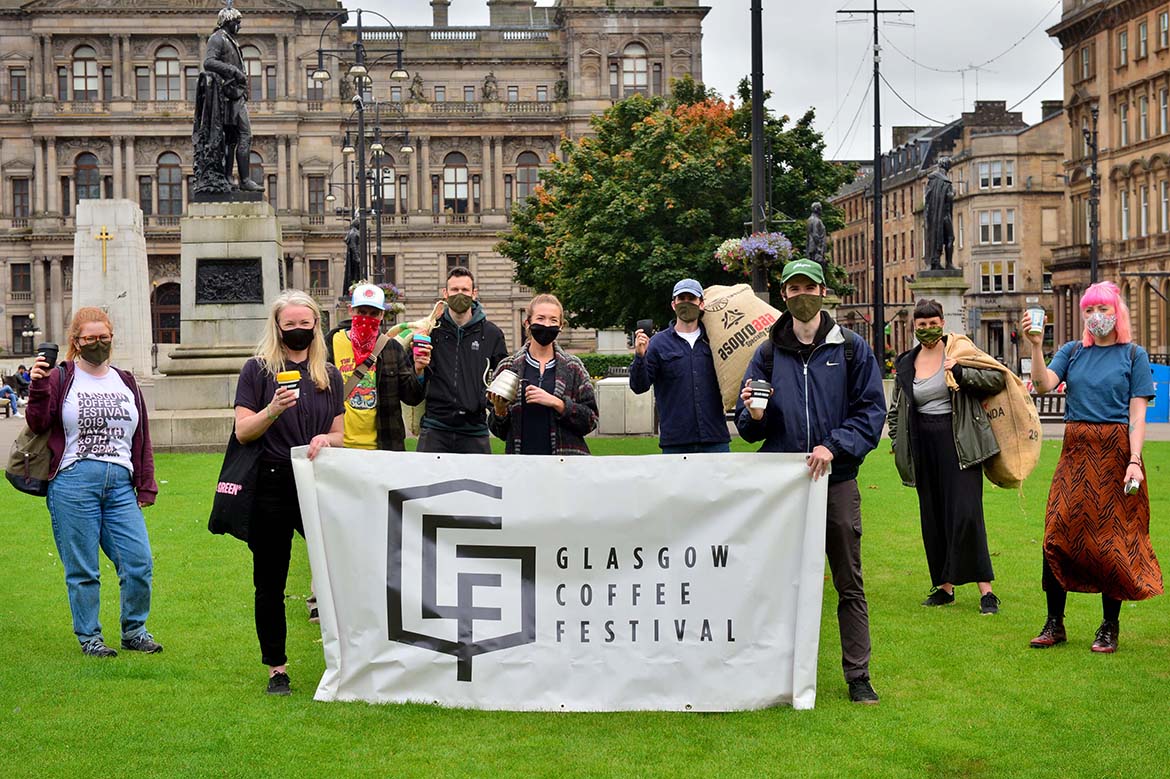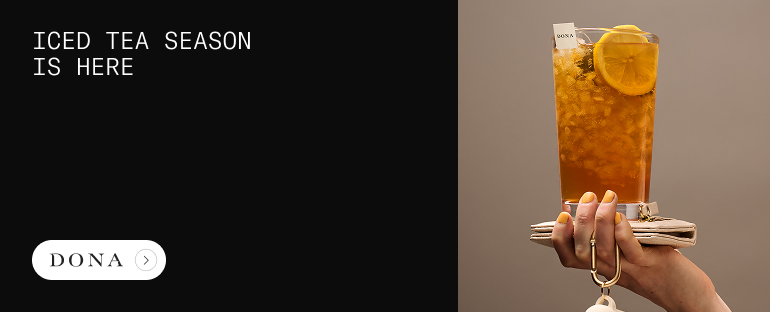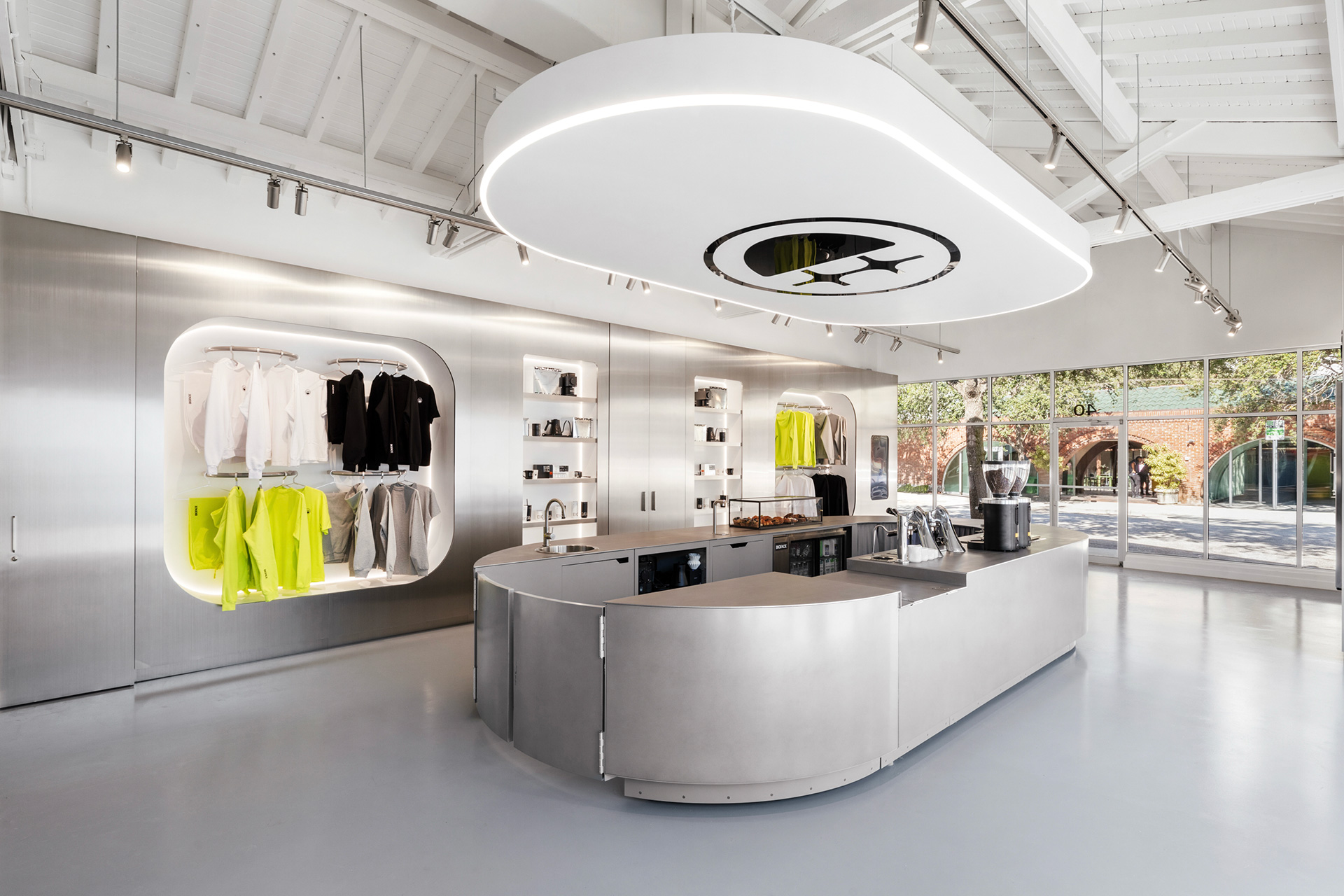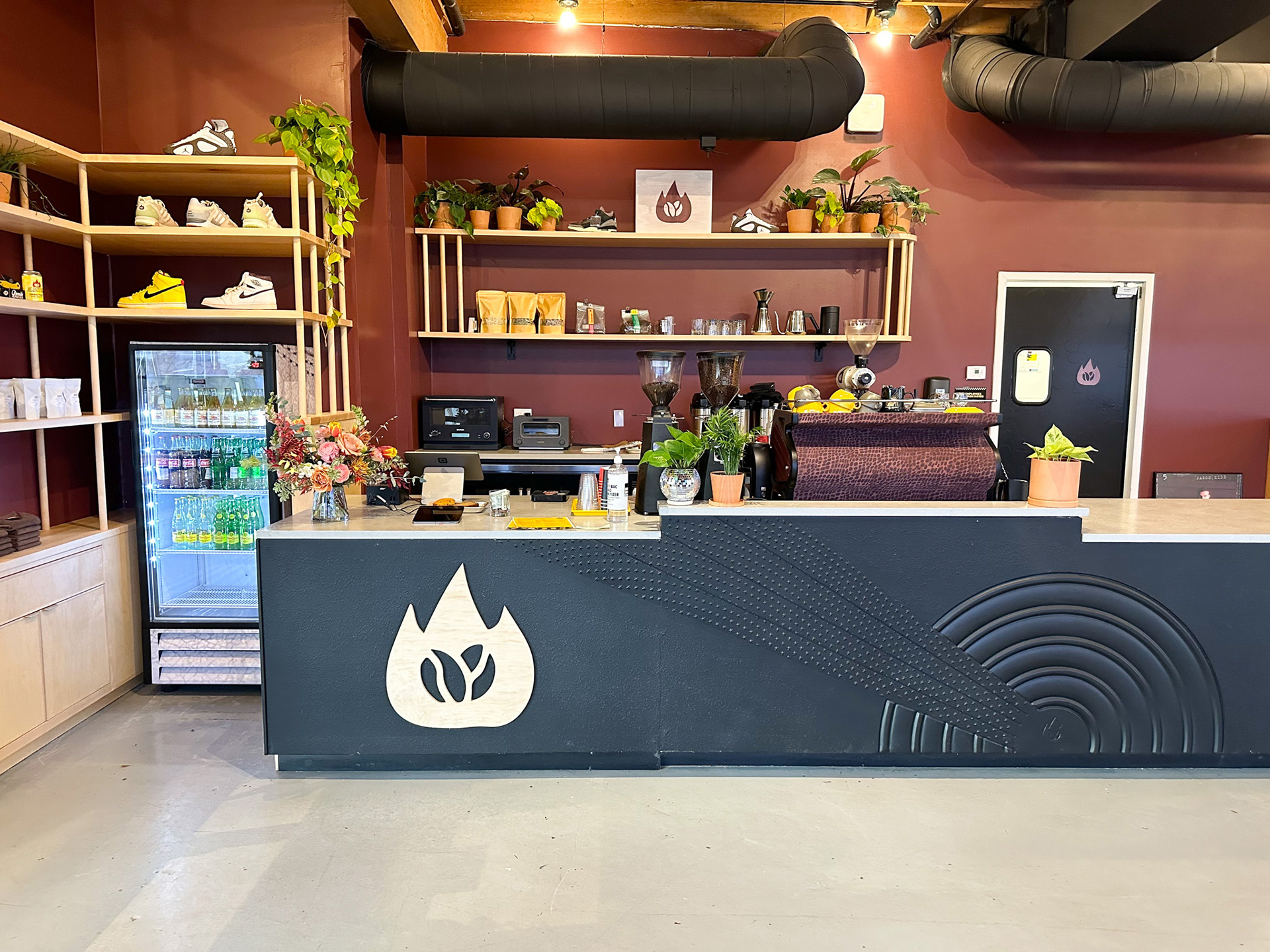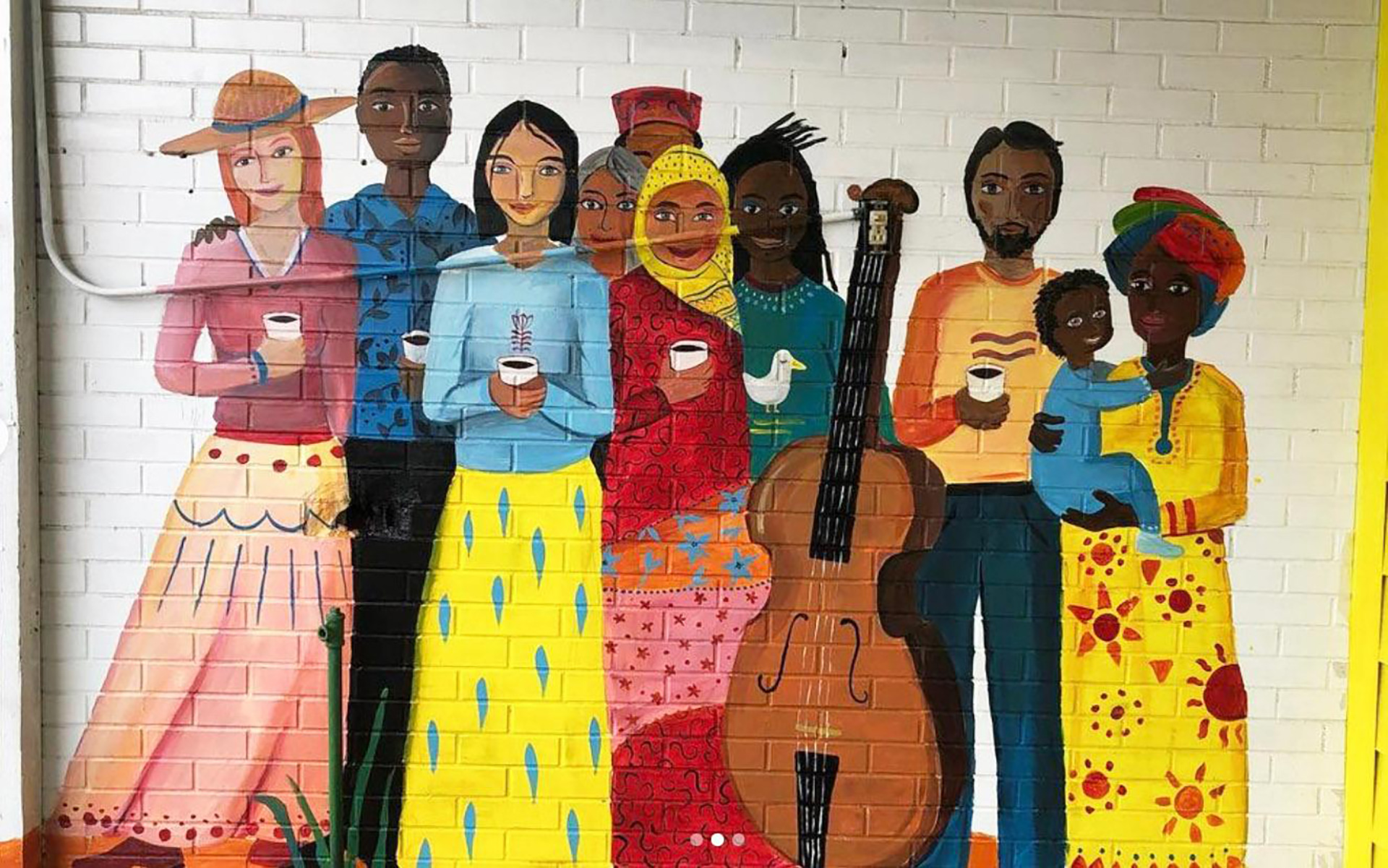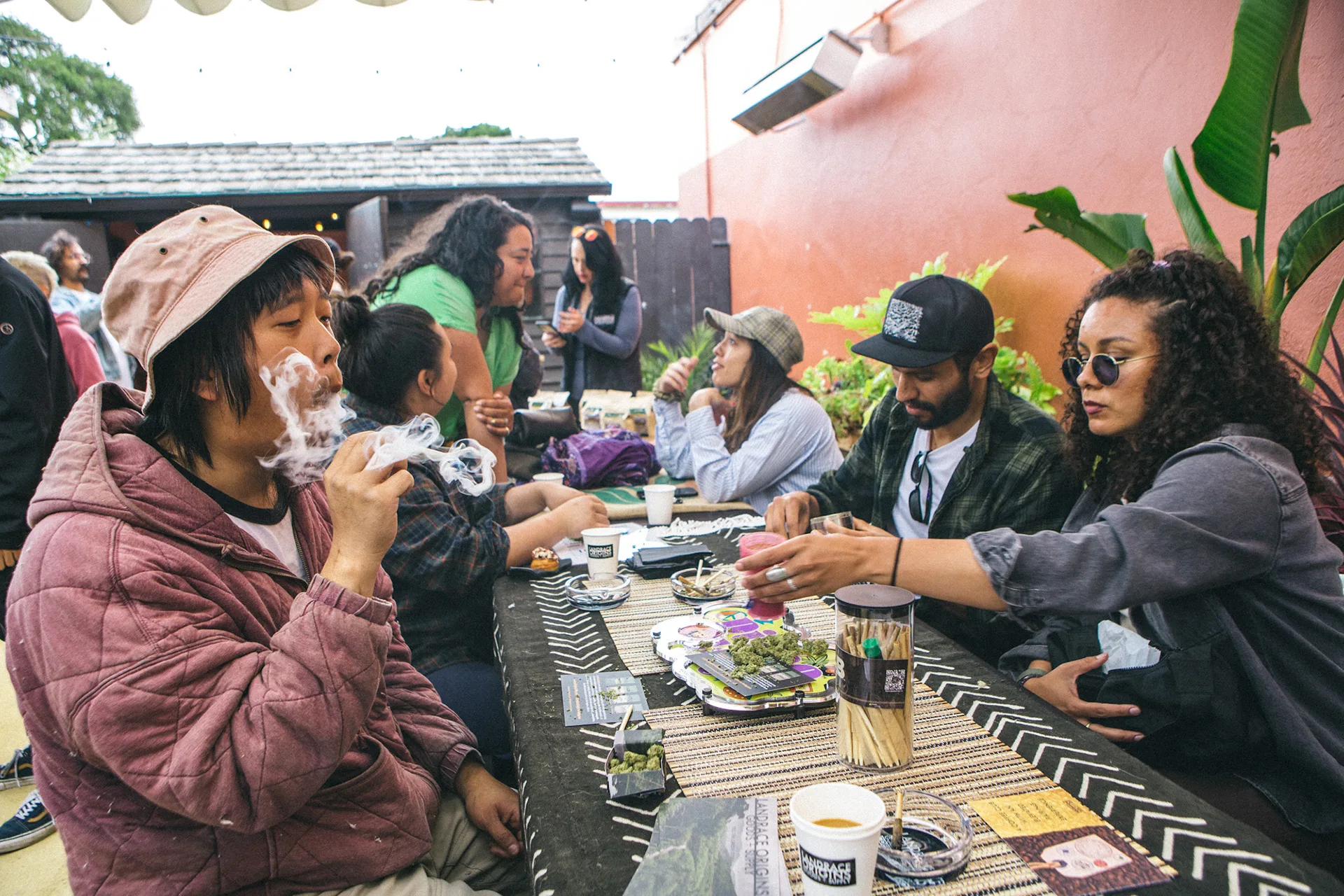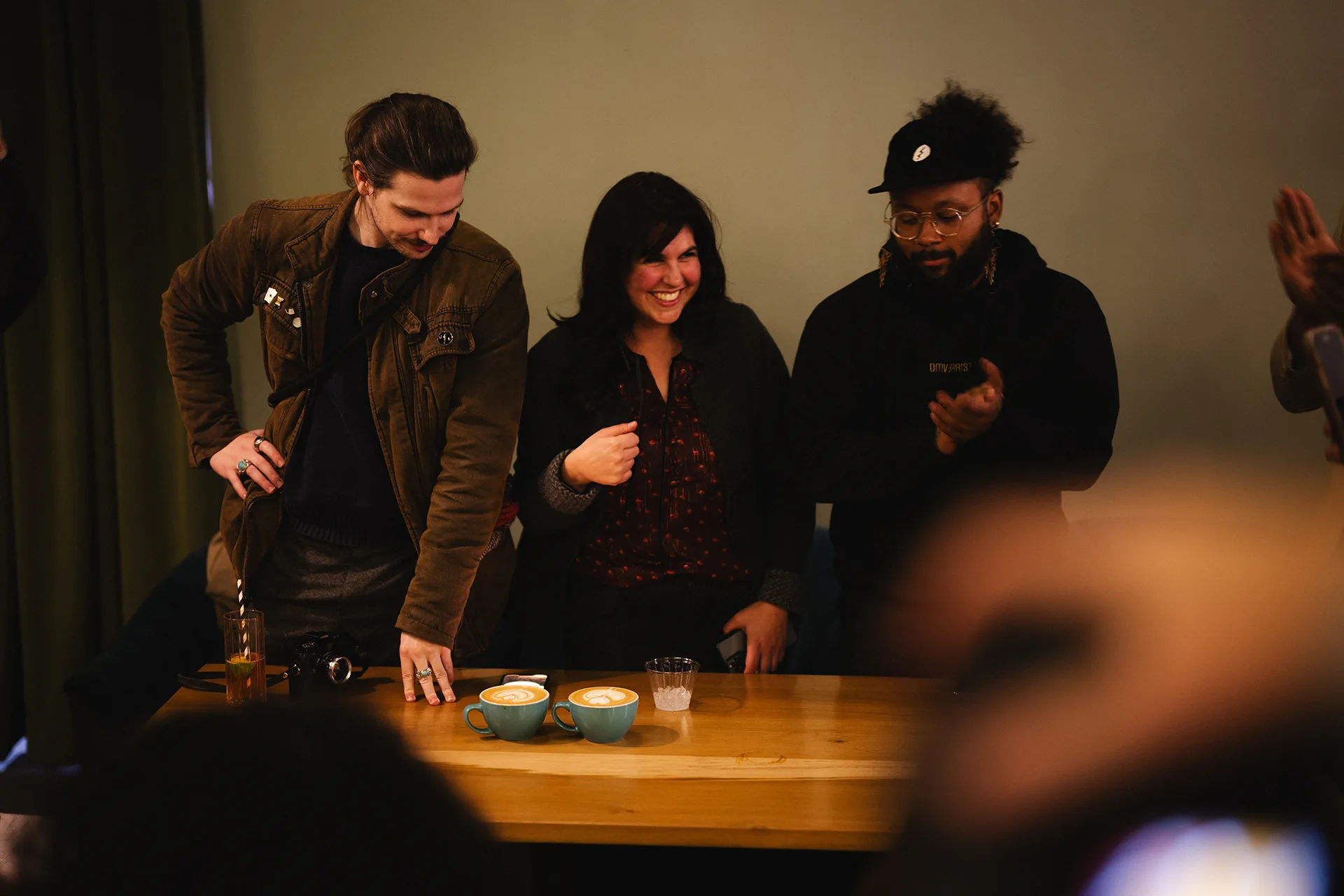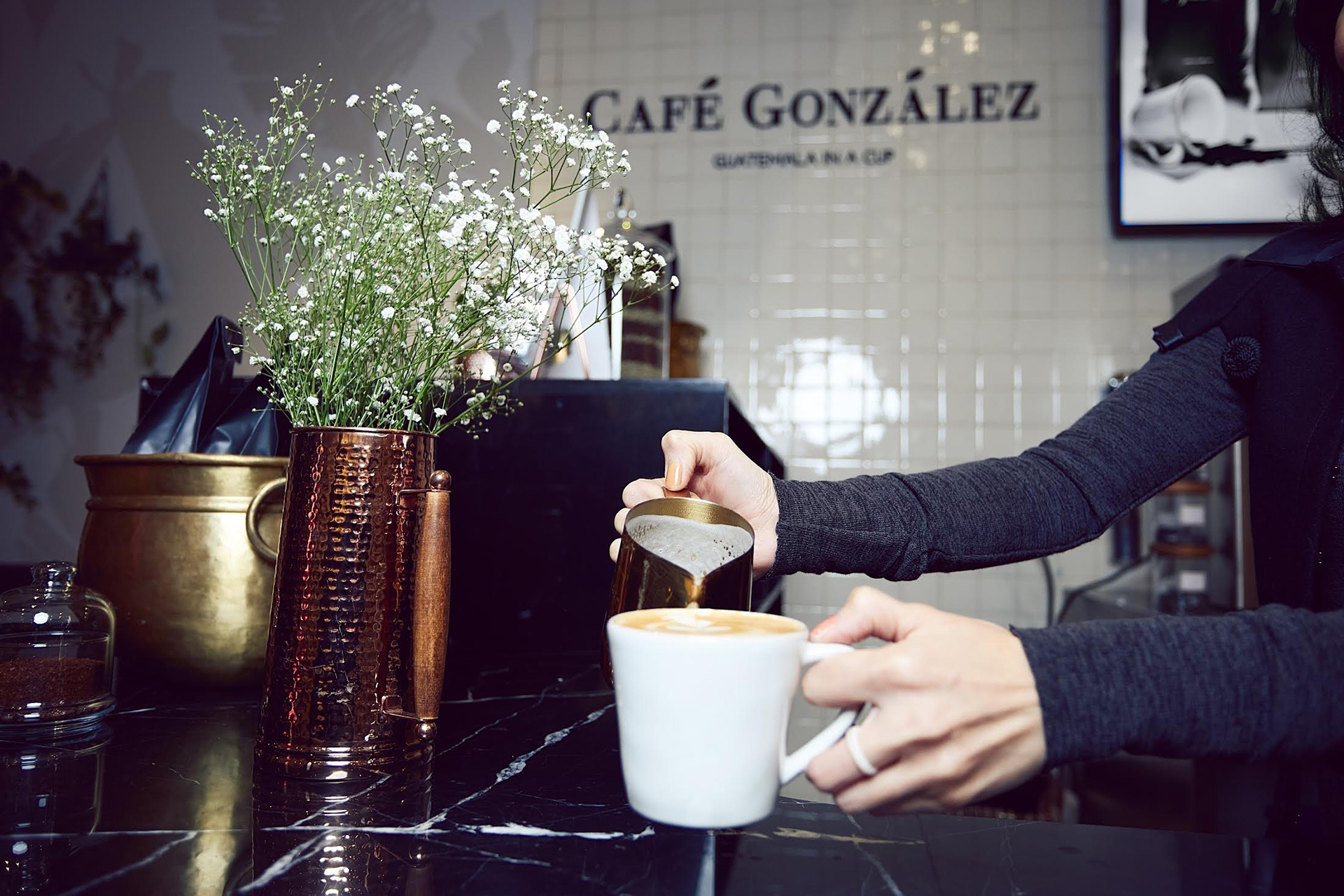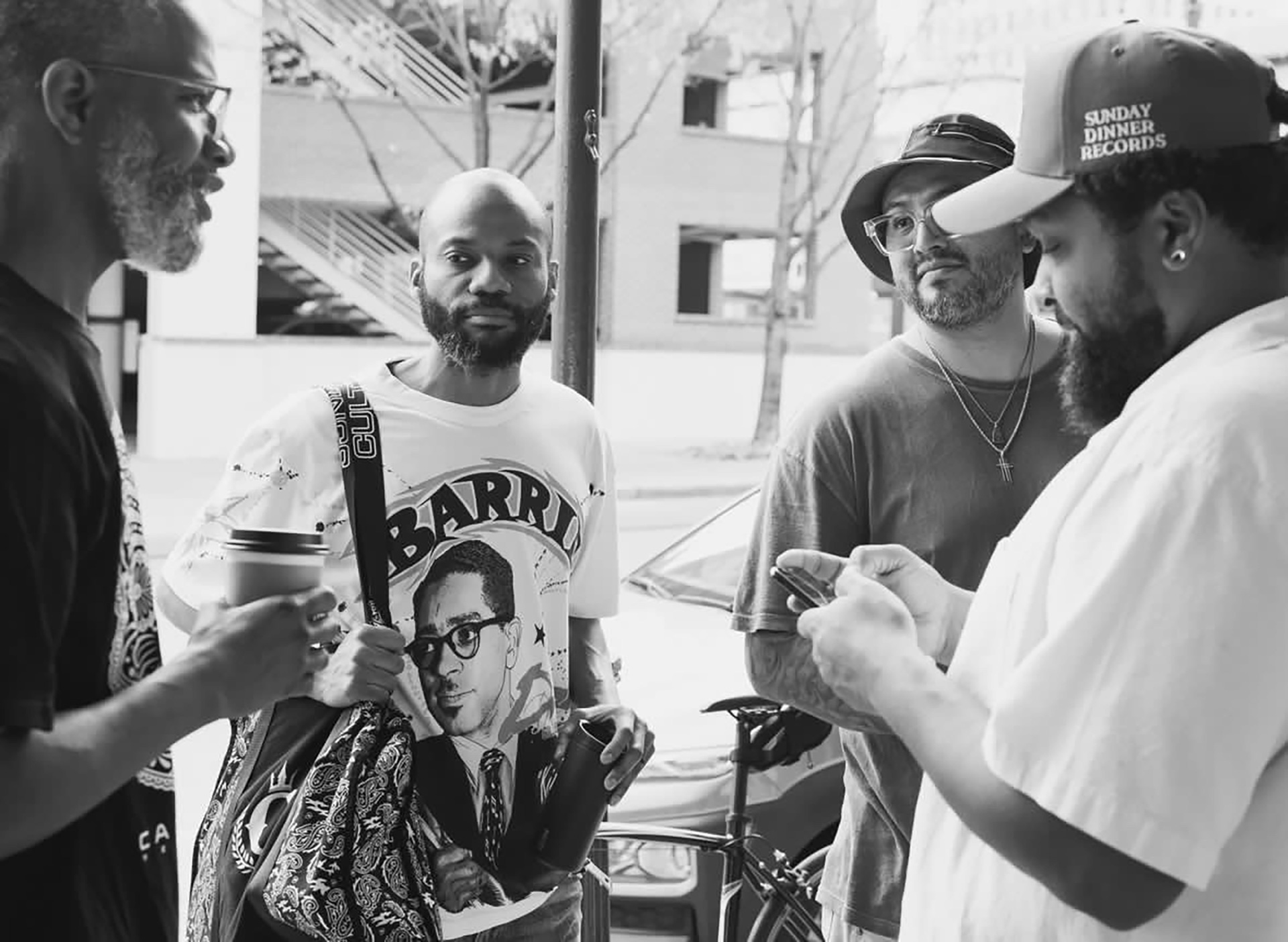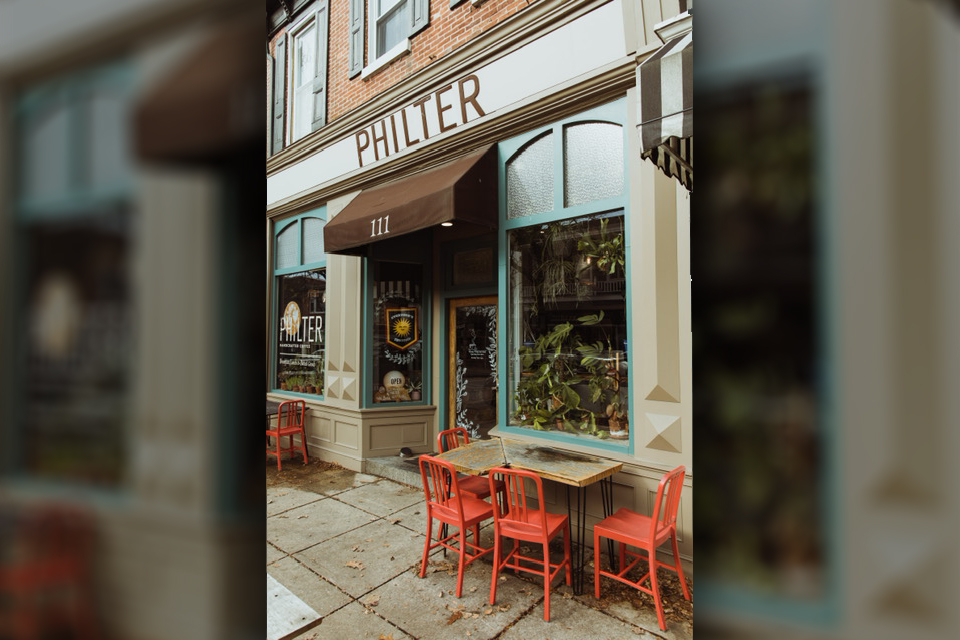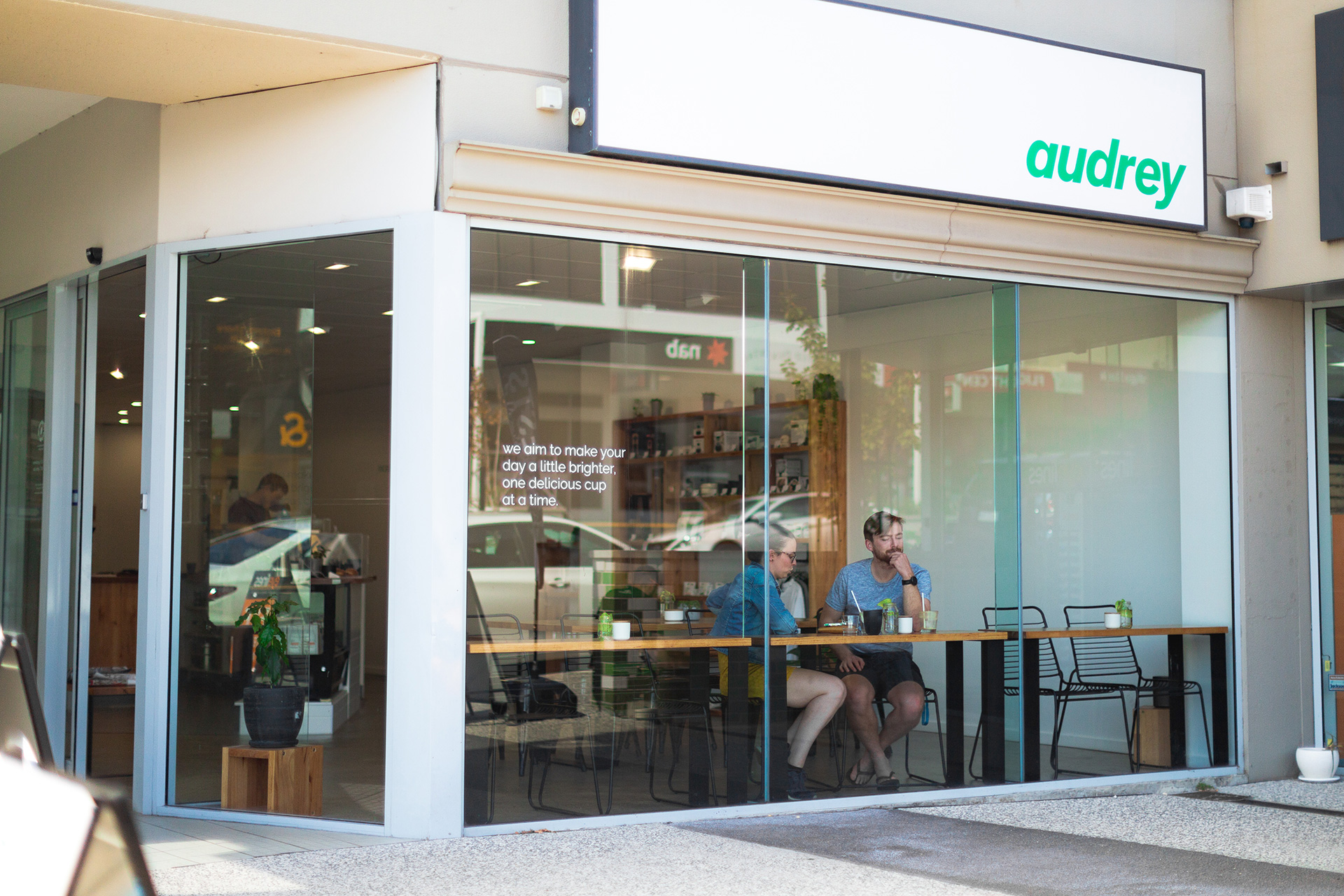
Tasmania: It’s the little piece of land underneath the Land Down Under. On the East side of the River Derwent, across the bridge from Hobart, (the largest city in Australia’s little island state) is a spot that looks out of place for the business park surrounding it. Tucked in a beige-grey building on a side street, a white sign reads “Audrey” in punchy green. It’s Audrey Coffee, a project from partners Luke Wilcox and Pete Ladyman, who initially met in 2016 amidst whirring Probats at local Hobart roaster Villino Coffee Roasters.
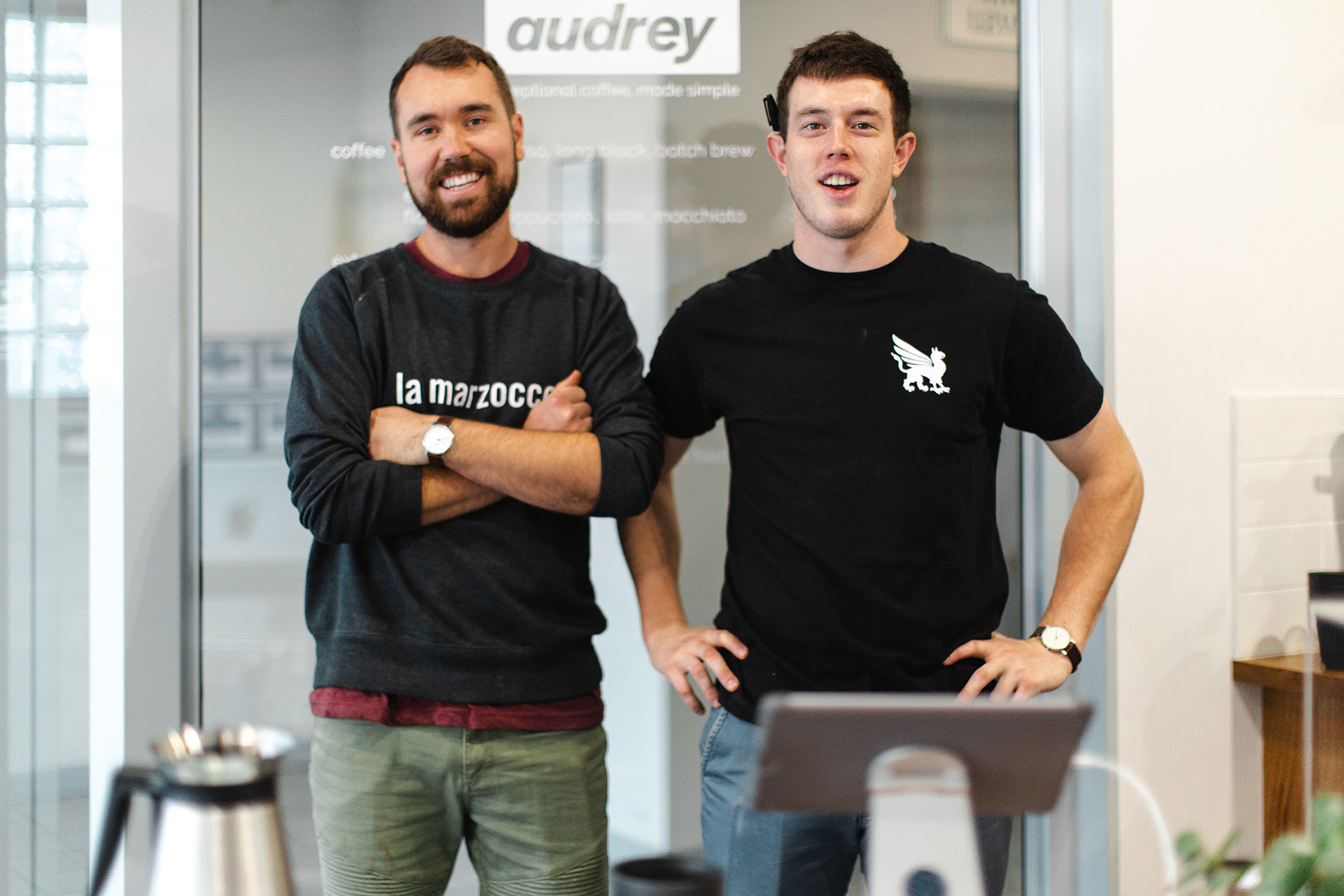
After success with this location in Rosny Park, Wilcox and Ladyman have recently cut another ribbon at their second site on the Eastern Shore—in the middle of both a pandemic and the Tasmanian winter—and they’re bringing their sharp aesthetics, attention to sustainability, and dialed brewing practices with them.
Inside Audrey Coffee, aesthetic abounds from a common theme: white walls, wood surfaces, and plants. Natural light highlights this interior that borders on sterile, but serves as a canvas for what’s on center stage here—coffee roasted around the world and brewed with care. On one such wall, in the midst of a robust selection of home brewing equipment for sale, hang shirts blank except for a verdant “Eastern Shore” splashed across their fronts—the design, like the Audrey logo, reminiscent of a skateboard luxury brand, and a loving nod to their whereabouts.
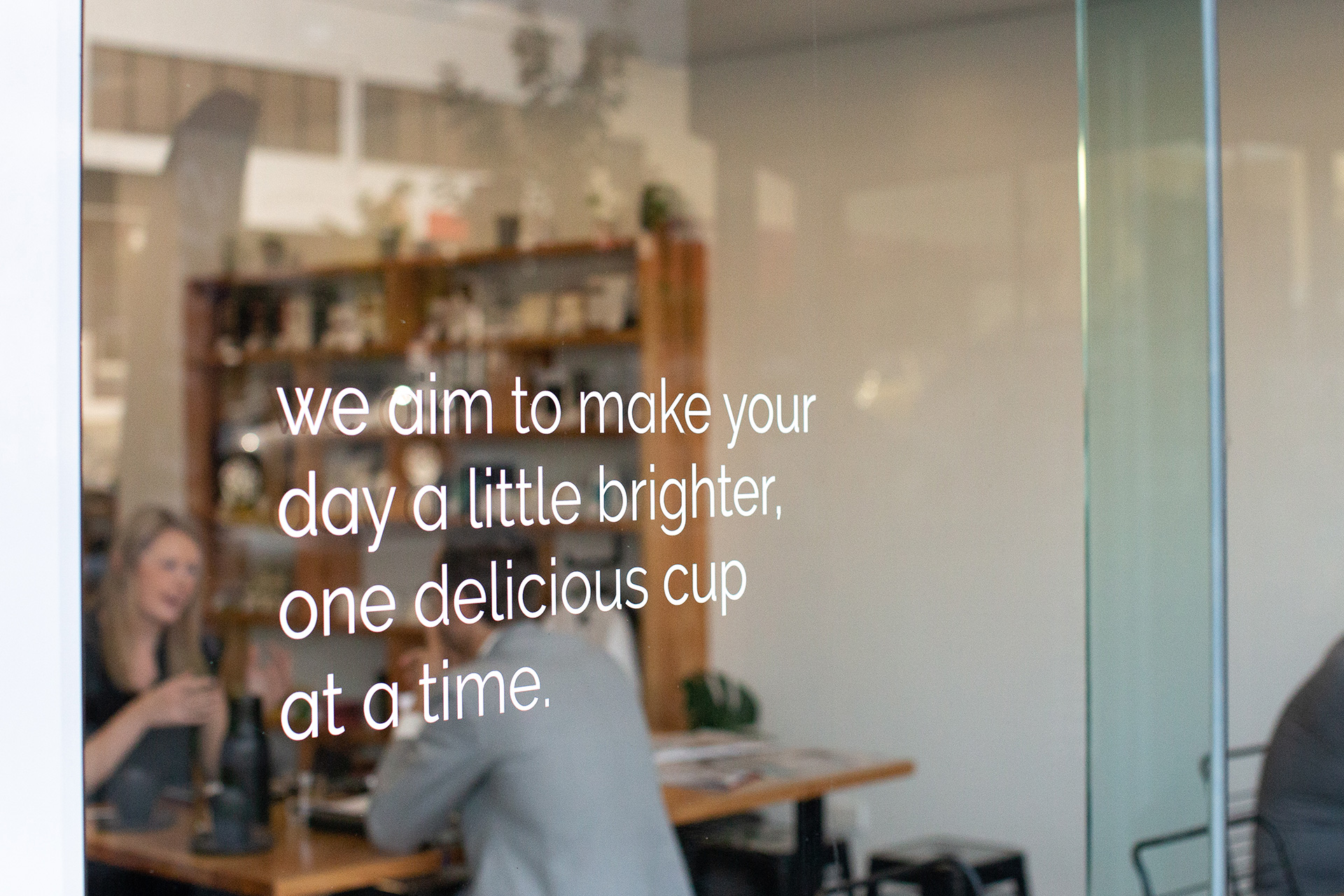
Importing coffee into Tasmania has never been simple, even prior to the pandemic. Most coffee arrives by boat rather than plane, adding surcharges and delays, but Wilcox and Ladyman are unfazed by the hassle. Since opening Audrey in early 2019, they’ve been bringing international roasters through quarterly, padding the spaces in between with mainland Aussie guest roasters and their mainstay local roaster and former stomping ground, Villino. London’s Square Mile Coffee hit their grinders as their first international roaster and from there they’ve featured Nomad Coffee (Spain), and April Coffee (Denmark), among others. Notable Australian guest cameos include women-centric roaster, Floozy Coffee, Market Lane, Therefore Coffee, Small Batch, and Maker Coffee.
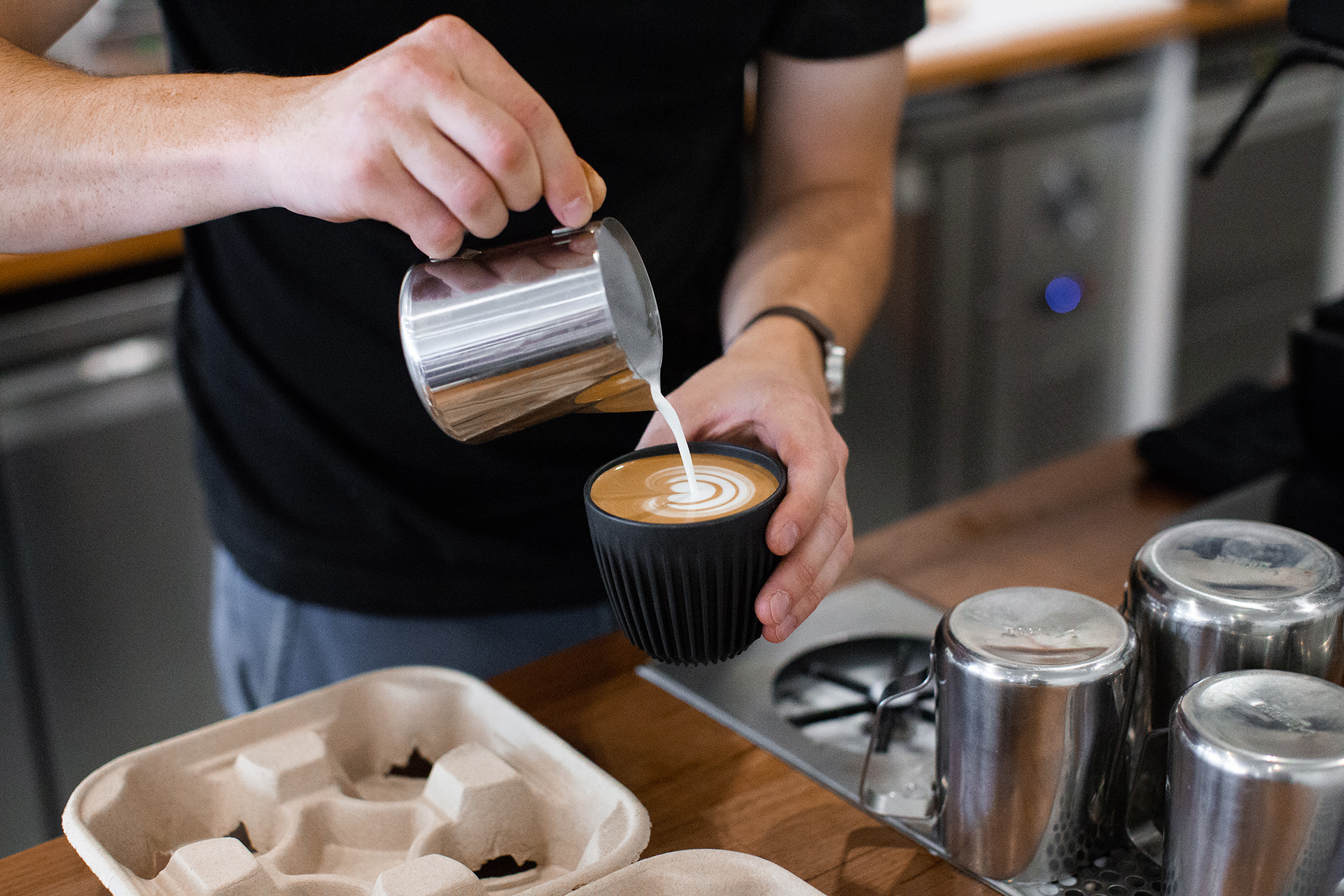
They’ve got three espresso options and every single shot of their single origin coffee is pre-dosed then ground through a Mahlkönig EK43. Milk drinks are made with a custom blend dubbed “Synergy” roasted by Villino. A Colombian offering is typically kept on as a second espresso option, and their current guest roaster covers a third. For “batchie” filter coffees, guests are served guest roaster single origin, brewed on a little Moccamaster.
Greater Hobart’s cafe scene offers few degrees of separation. It’s tight-knit. The city itself feels like a small town. It’s not uncommon to run into folks you know, multiple times a day. Many businesses close at or before 5:00PM, and you’re hard-pressed to find a cafe open on Sundays or during holidays, Audrey included. Some find Hobart’s quaintness to be part of what’s so attractive about the area, which has drawn palate-focused dignitaries like Martha Stewart and Yotam Ottolenghi. The food scene has blossomed in the last five years, and along with it, a need for traceability-focused coffee shops. “People in Tassie are generally very interested in where their food and drink comes from,” Ladyman says.
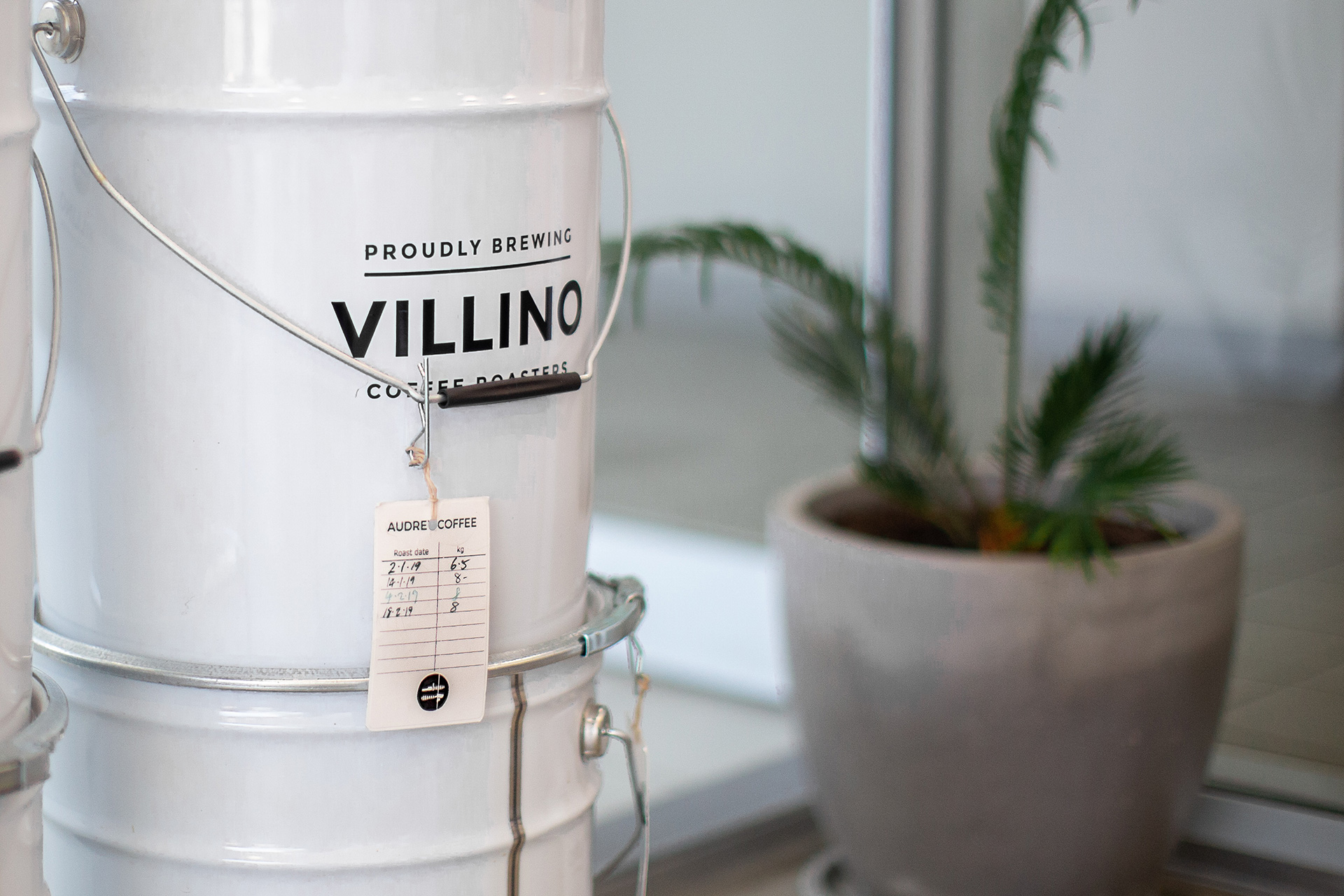
The owners are as committed to sustainability as they are quality. The cafe receives coffee from Villino in bulk tins to side-step coffee bag waste. Surprisingly, you won’t find a ceramic cup in the place. For dine-in service HuskeeCups are used. The reusable cups and lids are made from coffee husks, a waste material from coffee production. Their greater application functions as HuskeeCup’s HuskeeSwap initiative, a closed-loop system designed to do away with takeaway disposables. Cup owners are offered a fresh swap for any HuskeeCup brought in. “We’ve had a massive response so far,” says Ladyman about the initiative, with 800 cups sold to date, and many regulars entirely forgoing single-use for their daily cuppa. The swap program was put on pause for about 12 weeks total during the most severe cautionary period around Covid, but is now back in full swing.
At no point did Audrey have to fully close, but with heavy restrictions in place they shifted focus to eCommerce. “Our customers really stepped up their ordering of brewing gear, beans, and merch throughout the lockdown. Lots more people brewing at home because of the restrictions,” said Ladyman. “We saw a surge in online purchases and beans in particular.” Customers could have their purchases delivered or stop by for a quick pickup in person. The support helped them float the stark decrease in usual traffic and allayed any doubts the duo had about opening their second spot.
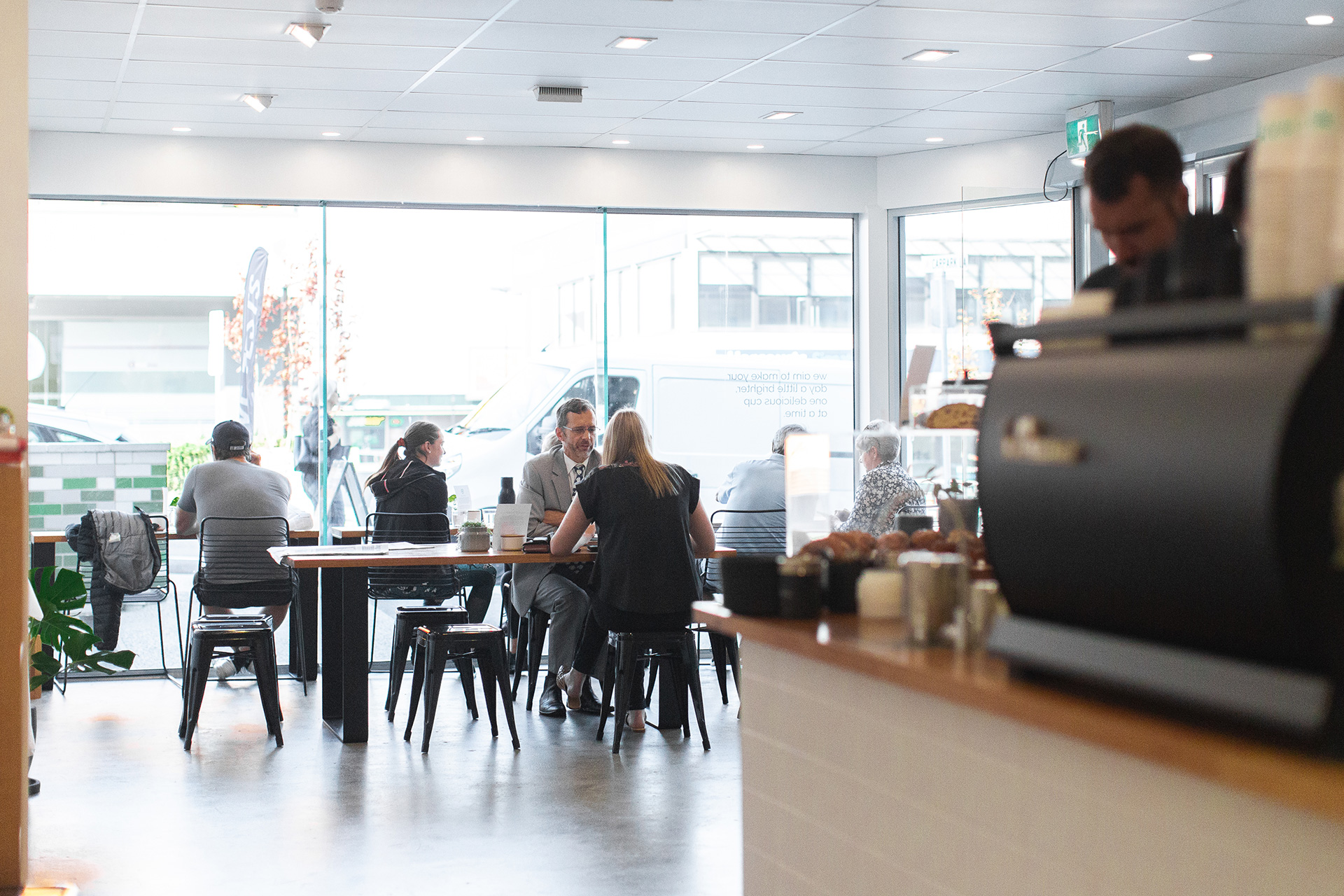
Audrey Coffee could be the catalyst to take Hobart’s coffee scene in a dialed-in direction. Their day-to-day reality offers a hopeful spark that there is indeed a friendly future ahead, especially when coffee and community go hand in hand.
Rachel Hopke is a coffee professional and freelance journalist currently based in Seattle. This is Rachel Hopke’s first feature for Sprudge.




